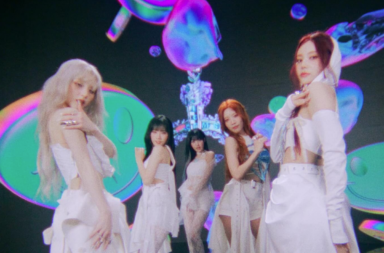2023 continues to push out drama after drama, with themes of revenge and sociopolitical commentary dominating most of them. Continuing on with the series of mid-year reviews, Janine and Aastha discuss what influenced their choices for the best dramas of the year so far.
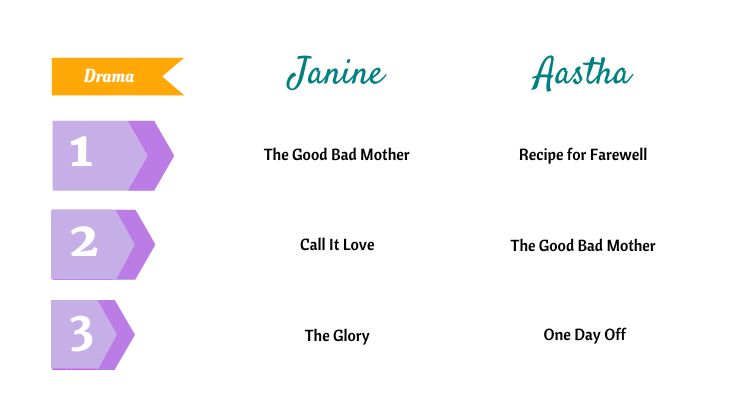
Janine: I think the first six months of this year have been an era of revenge. Dramas with themes of retribution, systemic injustice, and how to respond to harm have been everywhere. Every single one of my picks is a story of revenge and a large number of the dramas that narrowly missed the list are too. I noticed many dramas referencing news stories; my number three recommendation The Glory shockingly was partially based on real-life criminal cases of school violence.
The Glory is the most heavy-handed moralistic series on my list, making it difficult to recommend. I am, somewhat reluctantly, compelled to discuss it because the series is one of the highest ranked international titles on Netflix and has surged in popularity since the first half dropped last year.
The depiction of severe bullying is the first ambitious task taken on by The Glory; the second is the problem of revenge. The visual production elements are impressive throughout the series. The cinematography is used well to communicate the severity of the bullying without completely relying on gore. The way the violence is directed is impactful even after what feels like witnessing an endless torrent of abuse.
The downside is The Glory is a melodrama that does not allow for any significant character development. “Good” characters never do anything “bad” and the baddies are born sadists who become unrepentant, irredeemable villains. The characters are drawn with absolutely zero subtlety. It’s the skill of the actors and directing that ground scenes that could easily turn theatrical. The narrow morality of the script ties the plot up in very frustrating knots. That being said, The Glory does have strong elements and it’s a great drama to watch with others as an entry point to discuss topical issues.
What drew you to your choices this time, Aastha?
Aastha: Janine, you’re so right in identifying that revenge themes are on an all-time high recently. Unfortunately, I think that’s what led me to have high expectations from revenge dramas, and drove me away from the genre eventually. I just started feeling as though the revenge bit fell short of the grotesquely satisfying vengeance that I was looking for.
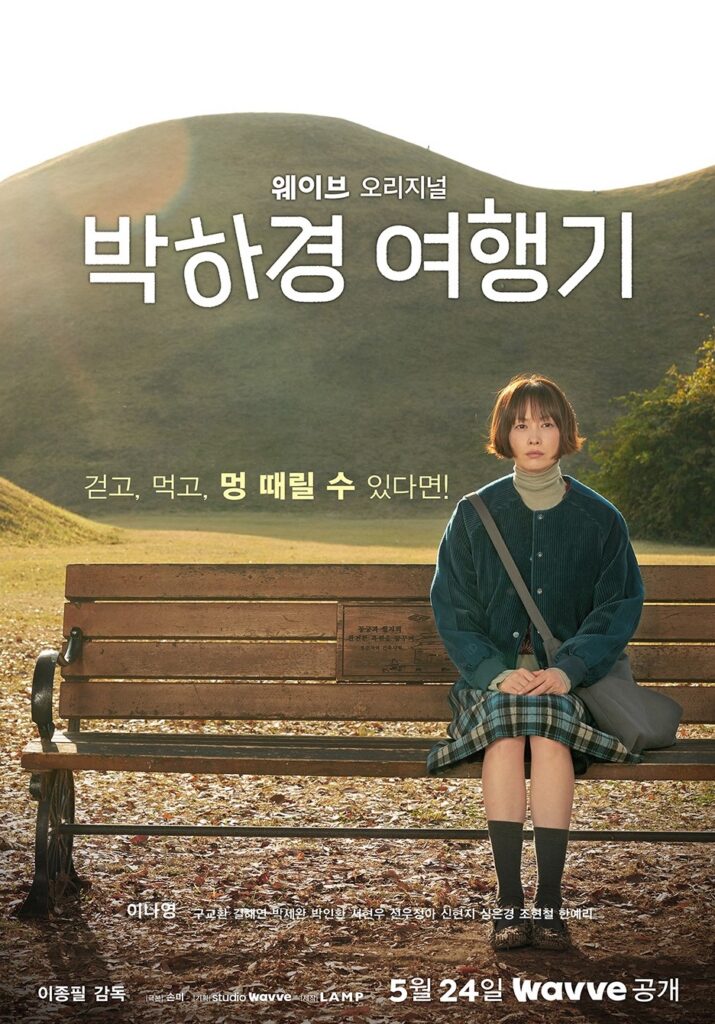
Instead, I was driven to mellower, slice-of-life inclined dramas like One Day Off and Recipe for Farewell. One Day Off is a slow-paced drama about a high-school literature teacher, Hakyung (Lee Na Young), who takes a day off to explore new surroundings. Through 8 short episodes, the drama explores the themes of prioritising yourself, the importance of community and human connection, and the necessity of breaking your routine to live outside the shackles of adulthood.
The episodes play out like pages of a diary entry; they’re random, but personal. Hakyung makes trips to aimless destinations simply to get away from her life for a while, but comes back from each trip with a new friendship, memory, or fondness for something. The narrative is easy to follow, and is proof that sometimes less is more. The impressive writing is credited to Son Mi, who wrote Samjin Company: English Class, winner of the Best Film at the 57th Baeksang Arts Awards. Paired with gorgeous direction and cinematography by Lee Jong-pil, (who directed the aforementioned movie as well), it makes for a delicately captivating watch.
If it weren’t for One Day Off, there was a high chance that Call It Love would have been on my list – what made the drama end up on your list, Janine?
Janine: I understand revenge fatigue! One Day Off is the kind of drama that is perfect when you’re craving something to remind you of the simple pleasures of life.
Call It Love was one of my favourite dramas of the year, so far, because of its nuance in the portrayal of grief and interpersonal relationships. Revenge is again a major theme but Call It Love does not show revenge as righteous but rather a pathological reaction to hurt. Lee Sung-kyung takes centre stage as Shim Woo-joo, a woman lost in pursuit of revenge following the death of her estranged father. The drama follows the story as Woo-joo develops romantic feelings for the son of her father’s second wife.
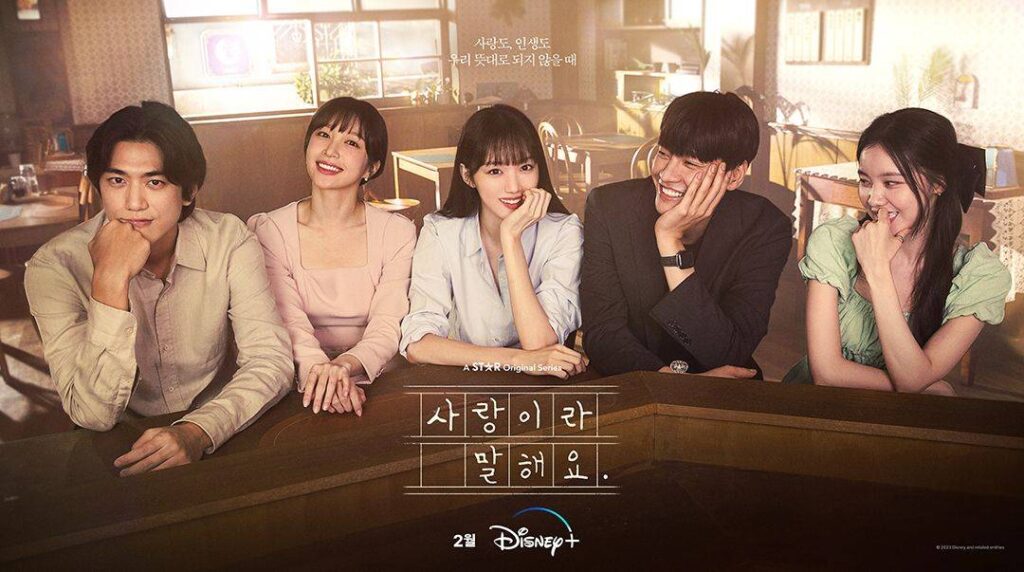
It can be compared to Can We Be Strangers? (my favourite divorce drama of this year) in the way that romance tropes are subverted by the emotional realism of the characters. By typical romantic rules, every single person should be matched up in order to have a happy ending. Call It Love is a slow burn that treats romantic love like a human experience and not as a cure-all for character flaws.
What I found compelling was the way vengeful actions were portrayed as one path to destruction but other flaws are not given a pass. I think the drama did well in complicating accepted devices and tropes. For example, Kim Young-kwang’s character Han Dongjin is a Fitzwilliam Darcy-type of romantic hero who suffers injustices in silence. The drama takes pains to point out that this kind of behaviour does not lead to healthy relationships.
Call It Love is thought-provoking in the way that it treats difficult emotions. The maturity and complexity allowed to its characters makes it one of the stronger dramas I’ve seen this year.
Your top pick Recipe for Farewell shares some similarities with Call It Love in that I would say it shows a story of character growth despite difficult circumstances. What did you enjoy about Recipe for Farewell?
Aastha: Similarly to One Day Off, Recipe for Farewell plays out its story across twelve short and quiet episodes. Even though the premise of the show is set from the beginning – a wife dying from cancer – it actually starts out pretty light-hearted. The thick layer of sadness and grief is slowly wrapped around its watchers, as emotions get more convoluted and characters are fleshed out more. Recipe for Farewell’s appeal is not in its entertainment value, but rather in the growth and development of its characters. It reflects the emotions of anger, love, hurt, betrayal, vulnerability, and how they are all intertwined within us.
The drama is about a husband who learns to cook for his soon-to-be-ex-wife when she comes to him requesting help after her diagnosis. Unlike most food-centered dramas focused on ingredients and techniques, the recipes that her husband learns or concocts are driven by pure concern and love and worry.
The narrative of the show may not be relatable to everyone, but it’s dramatized based on an autobiographical essay book written by Kang Chang-rae. That brings in an element of empathy and approachability regarding the drama. As the audience, you can feel the yearning and grief that the characters are going through. It also helps that the show has a stellar cast and features soothing (but impactful) narration by Han Seok-kyu.
I giggled a little when I realized this might be the only drama on my list not centered around revenge. It’s amusing how almost every pick of ours has something to do with it! It’s an inescapable theme, honestly. Even The Good Bad Mother relies on it for its plot. What about our mutual pick did you like?
Janine: The Good Bad Mother was a standout drama for me because of how it approached many serious topics. As we’ve been discussing, revenge is the theme of most of the dramas we’ve chosen and Good Bad is no exception. It touches not only on the theme of vengeance but also on the effects of government and judicial corruption, familial abuse, and how disabled people are treated. What makes it special is that, unlike some other melodramas, the protagonists and concerns of The Good Bad Mother are very firmly middle class.
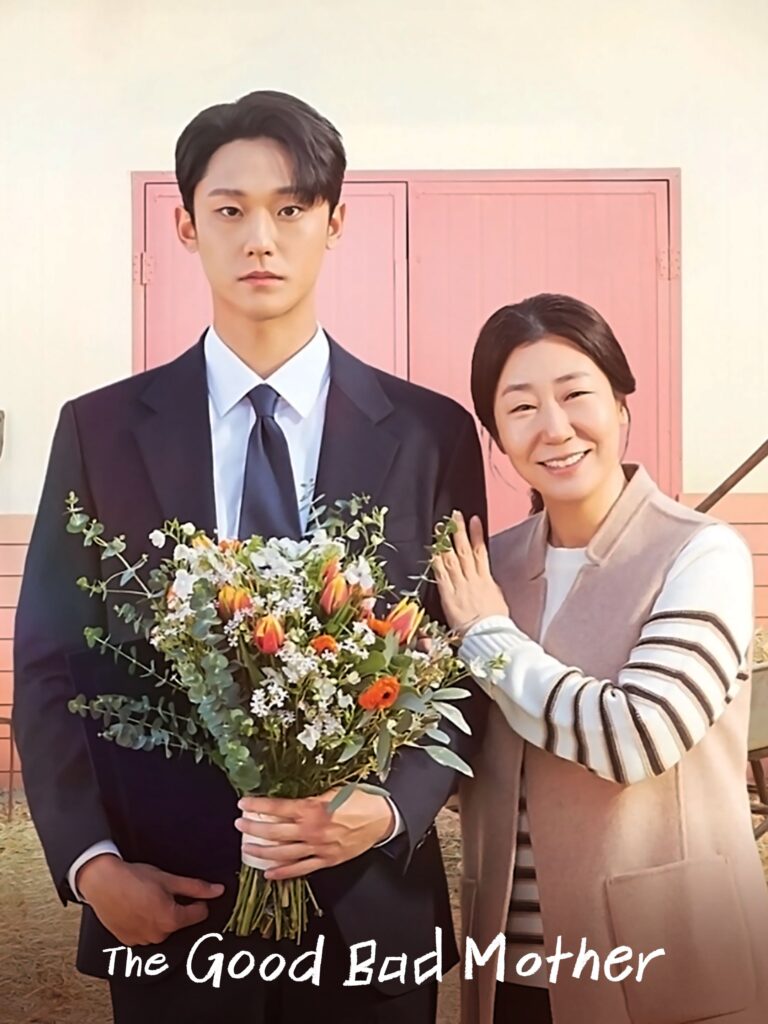
In Poetics, Aristotle says tragedy should be the sole domain of those of noble rank. This idea persists in modern storytelling, as the hardships of “ordinary” people are often treated as comedy. Bourgeois tragedy makes the claim that people like the pig farmers in Good Bad endure suffering that is as significant as the concerns of elite. The drama consistently pits bold ambitions like epic revenge against typical bourgeois values like the pursuit of personal happiness and community.
The Good Bad Mother subverts k-drama tropes of high-stakes melodrama by contrasting them with the provincial concerns of an ordinary family. A mother who has dedicated her life to the pursuit of revenge is given the chance to reevaluate the value of retribution in contrast to a worthwhile but commonplace life.
I was reminded of the prophecy of Achilles, delivered via Thetis, his immortal mother: he could choose a short life of eternal glory as a warrior or a long, happy, but unremembered life of peace. The Good Bad Mother looks at this question in a way that questions the value of lofty goals when accounting for the sacrifice it takes to reach them. I appreciated the way the drama made me think about storytelling, especially relating to stories about grand-scale corruption and revenge.
What about The Good Bad Mother spoke to you, Aastha?
Aastha: I definitely agree with you in The Good Bad Mother’s handling of class politics and the way it affected various characters’ trajectories and plot development.
The main appeal of The Good Bad Mother for me, however, was much more personal. What really drew me in was the depiction of the mother (Ra Mi-ran) and the complexity of her relationship with her son. Though they reconcile at the end, I really resonated with the struggle of a complicated parent-child relationship. What is a good mother? What is a bad one? In this cut-throat capitalist society, how much should you push your child to be successful, and how much happiness should that cost? Are you bad for wanting them to succeed? But when that comes at the price of serenity, can you be called good?
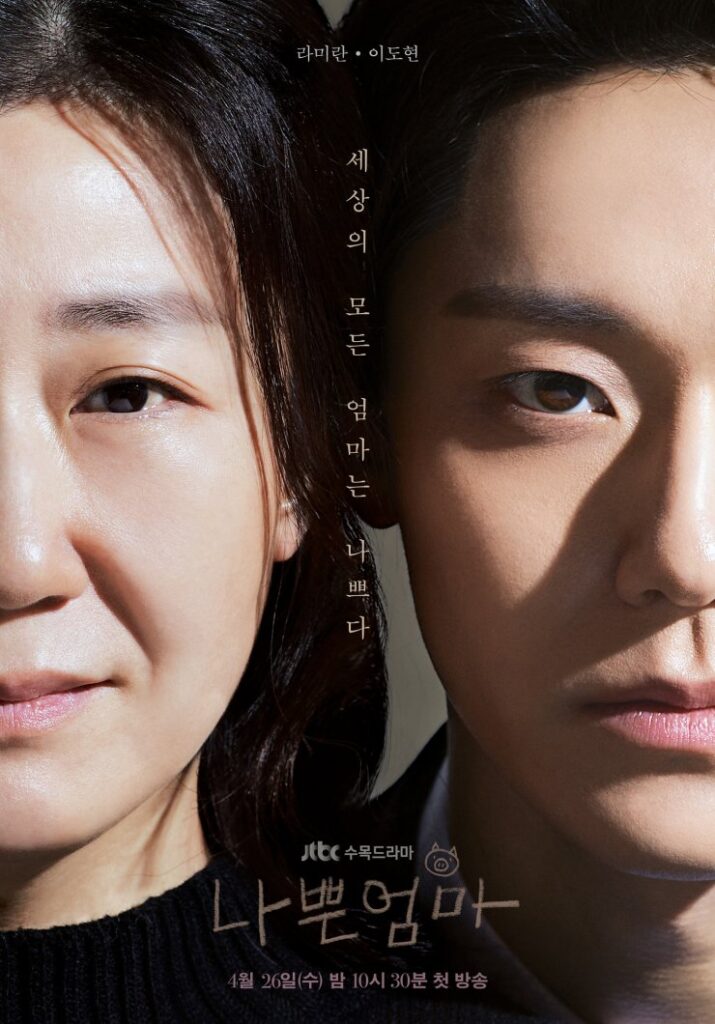
I enjoyed the way the “goodness” of the Kangho’s (Lee Do-hyun) mother was never particularly defined. It reiterated the idea that there is no ultimate perfection of parenthood, but rather it comes down to perception and the relationship you form with your child. The show picks apart the nuances and vulnerabilities of such a relationship in a thought-provoking manner.
Of course, there are smaller details that really drove The Good Bad Mother to the number one spot for me. Even with such a wide array of supporting characters, none of them fell flat or seemed cliched. The writing and dedication to developing every aspect of this drama to its fullest potential makes it a difficult one to miss, and it’s no surprise that it was received so well.
That wraps our mid-year drama discussion! Will the revenge drama trend continue through the rest of 2023? What shows will rise to the top of the increasingly packed and competitive drama field? Only time will tell, but undoubtedly there are already many great shows to watch from 2023, and likely even more to come.
(Time, Yonhap News Agency, YouTube:[1][2]. Images via: JTBC, Netflix, Disney+, Wavve.)


